What is Anal Itching?
Anal itching (known medically as pruritus ani) is irritation of the skin at the opening of the anal canal through which stool exits the body that leads to itching. The skin surrounding the opening is known as the anus. The itching is accompanied by the desire to scratch. Although itching may be a reaction to chemicals in the stool, it often implies that there is inflammation of the anal area. The intensity of anal itching and the amount of inflammation increases with the direct trauma of scratching and the presence of moisture. At its most intense, anal itching causes intolerable discomfort that often is described as burning and soreness.
What are the types of pruritus ani?
There are two main types of pruritus ani – primary and secondary.
- Primary (idiopathic) pruritus ani – this condition has no identifiable underlying cause. This is the most common type of pruritus ani.
- Secondary pruritus ani – this condition may be due to many different underlying causes. They may include infections, contact dermatitis or other dermatological conditions, systemic diseases, and other factors.
Pathophysiology of Anal Itching
The pathophysiology of pruritus ani has not been elucidated yet. It has been hypothesized that when sensory nerves in the perianal area are stimulated, skin irritation and subsequent pruritis is induced; consequently, the skin is excessively scratched, which causes skin injury. Fecal contamination due to abnormal transient internal sphincter relaxation has also been reported to result in a subsequent perianal itching problem. Feces contain endopeptidases of bacterial origin, in addition to potential allergens and bacteria. These enzymes are capable of causing both itching and inflammation.
Causes and risk factors of anal itching
Causes of pruritus ani can be either primary, meaning that there is no sign of another condition, or secondary, which means that there is an identifiable underlying cause.
Possible underlying causes include:
- Hygiene: Washing too much or too little can cause irritation.
- Cosmetics: Soaps and other products can irritate the skin.
- Skin conditions: Dermatitis and psoriasis can cause itching.
- Anal or rectal disorders: Examples include conditions such as piles, anal fistulas, and anal fissures.
- Infections: Sexually transmitted infections (STIs), especially those that involve parasites, can lead to itching. Some types of bacteria, fungi (yeast), or parasites can cause itching. Staphylococcus aureus or Streptococcus pyogenes (types of bacteria), Candida albicans (a yeast), pinworms (mainly in children), and Sarcoptes scabiei (scabies mites) are some organisms that result in itching and irritation.
- Systemic conditions: Some conditions that affect the whole body can cause itching, including anemia, diabetes, inflammatory bowel disease (IBD), jaundice, leukemia, lymphoma, and thyroid disease.
- Incontinence: This condition can make it hard to control moisture and bacteria.
- Foods: Dietary irritants include chili peppers.
- Drugs: Pruritis can be a side effect of chemotherapy, colchicine (Colcrys), neomycin (Mycitracin), and corticosteroids.
What are the signs and symptoms of an itchy anus?
In addition to anal itching, you may also experience:
- Burning
- Soreness
- Visible redness
- Swelling
- Ulcers
- A rash
Complications of itchy bottom
Frequently scratching your bottom may damage or tear the delicate skin around your anus. This may lead to problems such as:
- Thick and leathery skin (lichenification)
- Sore and broken down skin (ulceration)
- The top layer of skin being worn away (excoriation)
- Infection
The earlier these complications are diagnosed and treated, the quicker you’ll recover. You should visit your doctor if the skin around your anus changes or feels painful.
If the cause of your itchy bottom can’t be identified and treated, it may last for long periods of time (known as chronic itchy bottom). This may cause you to feel embarrassed, anxious or depressed.
As the urge to scratch is often worse at night, your sleep may also be disturbed, leaving you feeling tired during the day.
Speak to your doctor if your itchy bottom is making you anxious or depressed, or if it’s significantly affecting your sleep.
Diagnosis and test
Doctors first ask questions about the person’s symptoms and medical history. Doctors then do a physical examination. What they find during the history and physical examination often suggests a cause of the itching and the tests that may need to be done.
The history is focused on when the itching started and how long it has lasted. Doctors ask about the following:
- Ingestion of irritating foods, particularly acidic or spicy foods
- Bowel habits, including use of wipes, ointments (even those used to treat itching), sprays, and soaps applied to the anus
- Hygiene habits, particularly frequency of showers and baths
- Known infections or disorders (such as diabetes, hemorrhoids, or psoriasis)
- Recent use of antibiotics
The physical examination is focused on the appearance of the anus and the perianal skin. Doctors examine this area for
- Dullness and thickness
- Signs of irritation due to scratching
- Hemorrhoids, lesions, fistulas, and scrapes (caused by scratching and rubbing)
- Scabies or pinworms
Testing
If doctors do not see any abnormalities on or around the anus, they usually do not do tests and simply treat the person’s symptoms. If there are any visible skin abnormalities, doctors may examine a scraping of the perianal skin to rule out a fungal infection. Sometimes they give the person a local anesthetic and remove a small piece of tissue to examine under a microscope (skin biopsy).
If pinworms, which most often occur in school-age children, are suspected, eggs can be collected from the anal region using sticky transparent tape to confirm the diagnosis (see diagnosis of pinworm infection).
Doctors may also examine the anus with a short, rigid tube (a procedure called anoscopy) to check for internal hemorrhoids.
How anal itching (pruritus ani) is treated?
Usually, treatment focuses on establishing and maintaining a routine for proper anal hygiene. If a secondary or underlying cause is found, the treatment will depend on the specific condition.
Topical medications: Topical steroids, such as creams or ointments containing 1% hydrocortisone, may help to relieve itching and irritation. The cream or ointment may be applied two or three times to the affected area each day. Topical capsaicin has been studied as an alternative to steroids for patients with chronic pruritus ani.
Oral medications: Antibiotic or antifungal medications may be prescribed if an infection is present.
Methylene blue injection (anal tattooing): This technique may be used to treat more advanced cases that do not respond to topical medications. Methylene blue (a dye) is injected under the skin in the perianal region. It is thought that the methylene blue relieves pain and itching by deadening the nerve endings where the dye is injected.
Self-care at Home
To treat anal itching at home, you should keep the area as clean and dry as possible.
- Clean the anus gently after bowel movements, without scrubbing. Use a squeeze bottle of water, unscented baby wipes, a wet washcloth, or wet unscented toilet paper.
- Avoid soaps with dyes or fragrances.
- Pat dry with a clean, soft towel or unscented toilet paper. Do not rub the area.
- Try over-the-counter creams, ointments, or gels with hydrocortisone or zinc oxide, made to soothe anal itching. Be sure to follow the directions for use on the package.
- Wear loose clothing and cotton underwear to help keep the area dry.
- Try not to scratch the area. This can cause swelling and irritation, and make itching worse.
- Avoid foods and beverages that can cause loose stools or irritate the skin around the anus. This includes spicy foods, caffeine, and alcohol.
Use fiber supplements, if needed, to help you have regular bowel movements.
Prevention of Anal Itching
In many cases, you can prevent anal itch by taking the following steps:
- Practice good anal hygiene — when possible, gently cleanse the anal area after every bowel movement by using wet toilet paper (unscented and dye-free) or a wet washcloth. Wipe gently or blot the area. Never rub or scrub. If you are in a public toilet, use dry toilet paper temporarily, then finish your cleansing regimen when you return home.
- Use only water to clean the anal area, never soap.
- Avoid using medicated powders, perfumed sprays or deodorants on the anal area.
- Eat a sensible diet that is low in the foods and beverages known to cause anal irritation.
- Wear cotton underwear that is not too tight.
- If you are taking oral antibiotics, eat yogurt to help restore the normal ecology of your colon.
 Diseases Treatments Dictionary This is complete solution to read all diseases treatments Which covers Prevention, Causes, Symptoms, Medical Terms, Drugs, Prescription, Natural Remedies with cures and Treatments. Most of the common diseases were listed in names, split with categories.
Diseases Treatments Dictionary This is complete solution to read all diseases treatments Which covers Prevention, Causes, Symptoms, Medical Terms, Drugs, Prescription, Natural Remedies with cures and Treatments. Most of the common diseases were listed in names, split with categories.
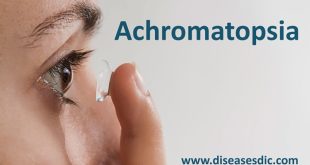
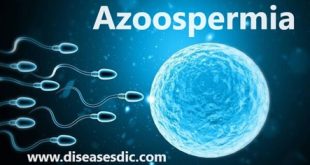
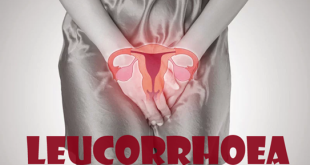
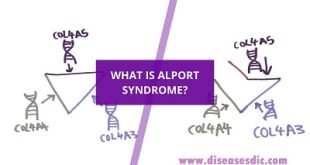
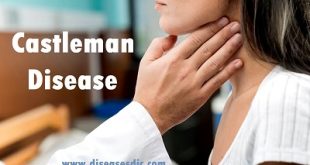
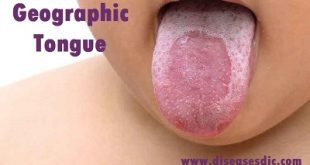


when bathing,is soap applied in sponge and use for cleaning the anal part?
While personal hygiene is essential, it’s generally recommended to avoid using a shared sponge for cleaning the anal area to prevent the spread of bacteria. Instead, use a separate, clean cloth or disposable wipes. Ensure thorough washing with mild, fragrance-free soap and gentle patting to prevent irritation. If anal itching persists, consult with a healthcare professional for proper evaluation and guidance.
when you sit on chair for à long time,why do your anal itch you?
Prolonged sitting can lead to increased pressure on the anal region, potentially causing irritation and discomfort. This pressure, combined with factors like friction and sweat, may contribute to itching. Maintaining good hygiene, taking breaks to stand and move, and using a cushion or ergonomic chair may help alleviate discomfort. Persistent anal itching should be evaluated by a healthcare professional to rule out underlying causes.
what is the treatment for anal itch
The treatment for anal itching depends on the underlying cause. Maintaining good hygiene, using fragrance-free, gentle soaps, and avoiding irritants can help. Over-the-counter creams containing hydrocortisone may provide relief, but persistent itching warrants evaluation by a healthcare professional to determine the cause and recommend appropriate treatment, which may include prescription medications or lifestyle changes.
i have experienced the problem, i usually take a lot of chili, i shaved the forest down there and the itching stopped